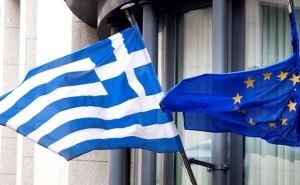
Greece Emerges from Eurozone Bailout Programme
The economy has grown slowly in recent years and is still 25% smaller than when the crisis began.

The economy has grown slowly in recent years and is still 25% smaller than when the crisis began.
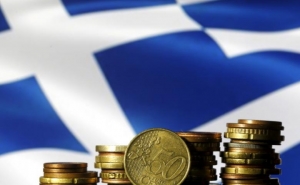
Greece can have a competitive economy once it makes reforms agreed with its euro zone creditors, German Finance Minister Wolfgang Schaeuble said on Monday.
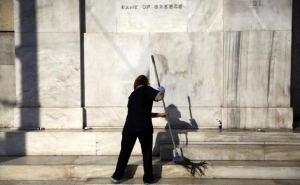
Greece's unemployment rate has come down from record highs but remains more than double the euro zone's average of 10 percent in August.
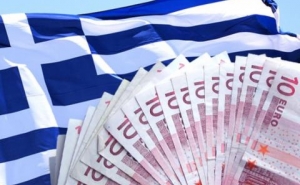
The Eurogroup also recalled the medium-term primary surplus target for Greece at 3.5% of GDP as of 2018 and underlined the "importance of a fiscal trajectory consistent with the fiscal commitments under the EU framework."
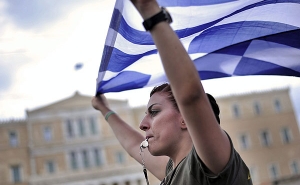
Public transport workers joined the strike. Today and on Saturday in the Greek capital metros, trolley buses and trams will not work.
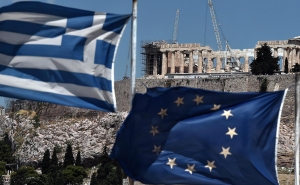
Following pressure from bailout creditors, the government has committed to overhaul the country’s pension system, which, it admits, is otherwise moribund.

The mobilisation was being held as senior representatives of the European Commission, the European Central Bank, the IMF and the European stability fund are holding a review of reforms pledged under the country's third bailout.

Athens wants to conclude the review and recapitalise its banks quickly, to secure fresh aid and talks on debt relief.

The main priorities of Greece are reducing the debt by way of extending payments, reducing interest rates and introducing a growth clause and long grace period; recapitalizing the banks and establishing a special body that will be tasked with creating the necessary framework to attract private investments and encourage local brands and entrepreneurs.
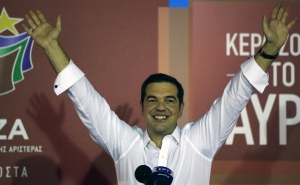
As for the EU and its main leaders, most of them have already congratulated Tsipras on his great victory. European Council president Donald Tusk said he hoped the election results would ''provide for the political stability necessary to face all the challenges at hand,'' The Guardian tells.
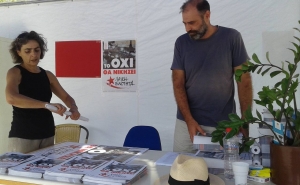
Late polls suggested that momentum could have been shifting in favour of Alexis Tsipras and his leftist Syriza party.
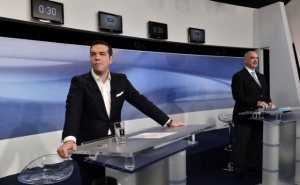
The most recent polls show little to choose between Syriza and New Democracy, at about 26 per cent of the vote each, with the high number of undecided voters likely to be pivotal.

Despite the fact that there is less than two weeks before the election, there is still no leader in the pre-electoral race.

As the source writes Tsipras hopes to secure a new mandate for a tough austerity program he agreed in exchange for an 86 billion euro bailout with the cash-starved country's creditors.
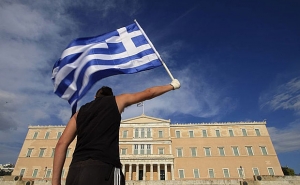
The deal is worth €1.23bn euros (£0.9bn/$1.37bn), is aimed at repealing the conditions of Greece’s previous two bailouts.

However, the Greek problem would not be so difficult to solve, if it was only the opposition party to stand against Tsipras and his decisions, but as long as the split is among the ruling party, and the Prime Minister has some serious opponents within his own Syriza party, it could be very difficult to implement fully and properly the long-discussed and much argued reforms.
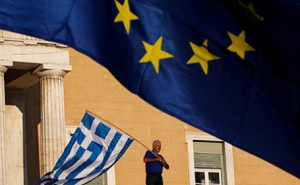
Earlier, Prime Minister Alexis Tsipras urged deputies to support the agreement, calling it "a necessary step" for the nation.
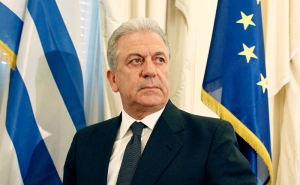
European Commissioner for Migration Dimitris Avramopoulos, who is in Athens will present the support measures the commission can offer to help Greece deal with the record number of migrants arriving in the country.

After the bill passes through the Greek Parliament, the deal must be sent to Eurozone Finance Ministers, who will then have to proceed with having it approved by their respective parliaments.
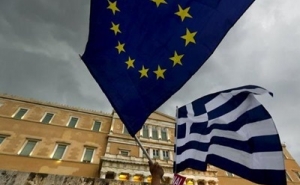
Athens is interested in entering the agreement into force as soon as possible, because it needs to pay another portion of the debt to European Central Bank by August 20.

The creditors want Greece to amend the existing legislation regarding hiring in the public sector, the 2014-15 tax and debt installment schemes, and state subsidies to the EBZ (sugar industry).
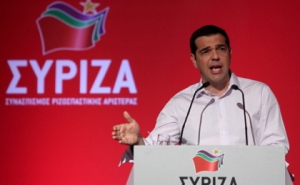
The PM’s initial intention was to complete a bailout agreement as soon as possible before dealing with Syriza’s internal rebels at a party congress in September, which could lead to the party splitting, with national elections following soon afterward.
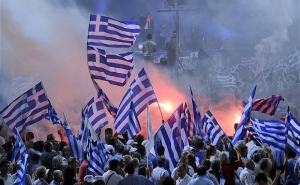
Athens and Brussels hope the terms of the new bailout can be finalized by mid-August, with cash-strapped Athens facing a 3.2 billion euro repayment to the ECB on August 20, and a 1.5 billion euro reimbursement to the IMF the following month.
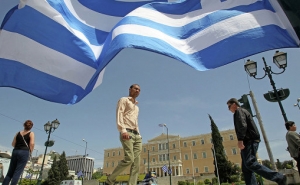
"In parallel several working groups will address the issues of budget, pension, labor, commodity markets and so on," a representative of the Ministry of Finance told the reporters.

As the source writes, the main issues in the bill are the changes in the Code of Civil Procedure for speeding up court processes and reducing their costs.

However, Greeks are still facing some problems, namely, a block on money transfers abroad.

Interestingly, both the experts, journalists and the decision-makers themselves had often put aside the fact that this problem is not only a Greek one, but it’s rather a pan-European problem as the European Union has faced some cornerstone hardships during all this process.

The German Parliament should give a green light to Greece’s €86bn bailout deal – the voting will take place today
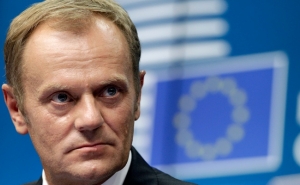
The agreement between the Greece government and international creditors is not a guarantee for the next years, and a new EU summit can be held this summer.

As for the Prime Minister Alexis Tsipras, he said that it was undoubtedly very difficult to take such a fateful decision, but he has taken full responsibility, thus avoiding to declare the country bankrupt and leaving the European institutions.

The hashtag has been used over 30,000 times, although many mentions also come from people criticizing the movement.
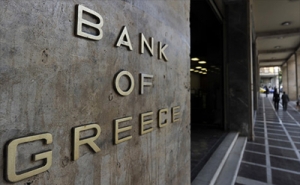
The Finance Ministry extended the bank holiday by 24 hours through Wednesday, but then extended it for yet another 24 hours.

The European leaders had seriously clashed over the deal to rescue Greece, with Germany and Finland taking a hard-line and the leaders of France and Italy expressing a distinct sense of unease over the German position — worried that it was undermining the European ideal.
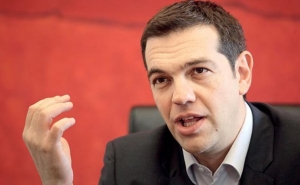
He also added that hopes Greeks will support in that process of economic development.

Previously, it was reported that the European leaders in the quadripartite format discussed in Brussels the possibility and terms of additional financial aid to Greece.

Earlier in the day, the eurozone finance ministers met in Brussels to discuss the Greek debt crisis and find possible solutions to it.

Talks so far have stalled on a lack of trust between Athens and some of its eurozone partners, who see Greece’s revised reform proposals as too little, too late and doubt they will be put into practice.
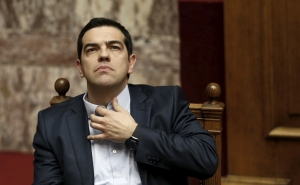
The decision was made during an extraordinary plenary session. The final agreement will also be ratified in the Parliament.

The Prime-Minister Tsipras wants to present a project to the EU, which would help to avoid GREXIT, putting an end to the crisis at the same time.

As the source writes, the new proposals will be studied by eurozone finance ministers on Saturday and a full EU summit on Sunday.

The European Union high officials, including the EU Commission President Jean-Claude Juncker and the EU Parliament leader Martin Schulz have both declared that despite the Greek people voted ''No'' to the creditors' demands and despite they do respect their will, however they do not want Greece to leave the Eurozone let alone the EU.

An emergency summit, which was decided to hold after Greek people rejected the eurozone-drafted plan, is considered to be the last chance for Greece.

The referendum is just a small component of the process. The crisis and the bailout have already become an indispensable part of Greek life. But one thing is clear that at this point the outcome does not matter any more, Greece and its people have established serious precedents within the EU and Brussels and they will have to deal with it.

The Commission made clear before the referendum that the question as it was posed in the referendum was neither factually nor legally correct

Though this year the main subject of discussion will be global development, emphasizing the economic cooperation, the BRICS leaders would also try to share their views on the situation in Syria and Yemen, threats from the ISIS and continuing instability in Afghanistan.

In addition the prime minister's spokeswoman noted that the United Kingdom supported a 28-member European Union and called on the parties "to find a sustainable solution" to Greece’s debt crisis.

Both leaders were unanimous in their opinion that the will of the Greek citizens should be treated with respect.

Alexis Tsipras is urging a resounding "No", saying it would give him a strengthened mandate to return to negotiations and demand a better deal, including a writedown on Greece’s massive debt.

"This event of default is cause for deep concern," the EFSF's chief executive Klaus Regling said adding that this will cause severe consequences for the economy of Greece.

In addition, the IMF predicts a significant slowdown in economic growth in Greece this year: zero percent, compared with the 2.5% that had been projected earlier.

After the Greece authorities closed the banks and imposed other capital controls, the situation in Greece became even worse. This was a huge psychological blow for the society.

The New Development Bank, also known as the BRICS Bank, is one of two international development multilateral banks that China is promoting as an alternative to western institutions such as the World Bank.
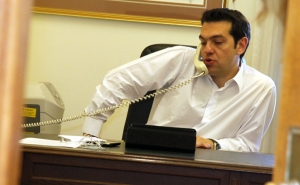
Following the request, the Eurozone finance ministers will discuss further extention of the current bailout programme, which ends June 30 at midnight.

"Tonight, exactly at 12:00 p.m. Central European Time [22:00 GMT], the program runs out. And I’m aware of no strong indications to the contrary. The door stays open."

Although many experts believe that Greeks will vote against the conditions of international creditors, as suggested the Prime Minister of Greece, Alexis Tsipras himself, in Greece, however, many citizens believe that the way out of the euro zone and the declaration of default in the country contain even more challenges, than the implementation of those conditions.

Government of Greece declared that it will go to court injunction against the EU institutions, both to block the country's expulsion from the euro and to halt asphyxiation of the banking system.

"The ministry will determine how pensions will be paid by 4:00 p.m.," the source said.

According to a decree of the Greek government, cash withdrawals will be limited to €60 (£42; $66) a day. This restriction, however, will not apply to holders of foreign bank cards.
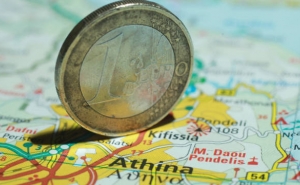
As the current bailout expires on Tuesday, creditors are expected to address a Greek request to extend that bailout until the vote is completed.
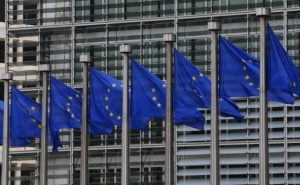
Tusk said that Cameron's recommendations will be taken into account, but with one condition that they will be safe not only for the EU but for the whole Europe. In Cameron's claims the priority, of course, was the issue of migrants and revision of "quota", which was one of the main topics of the summit.
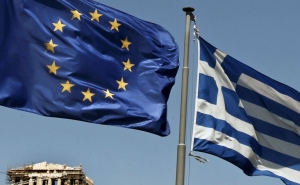
At the same time IMF declared that it will not move June 30 deadline for the €1.6bn payment. "As a matter of longstanding policy, the Fund does not extend payment deadlines," said a spokesman for the IMF.
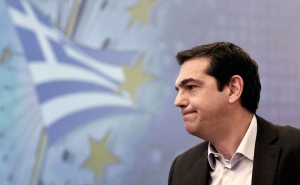
The latest Greek reform proposal was "a positive step”, Eurozone leaders announced on Monday. Although the bailout agreement was delayed until a Eurogroup meeting on Wednesday.

Greek Prime Minister Alexis Tsipras presented the three European leaders a proposal for a mutually beneficial agreement that would give a final solution at last and not postpone tackling the problem.
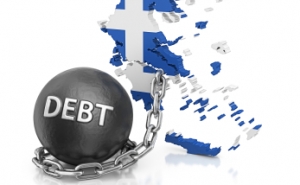
According to the head of the Eurogroup, Jeroen Dijsselbloem, during the meeting little progress has been made and a solution is not seen yet.

Lagarde also added that the leftist Syriza administration would need to concede over making further reforms to its pension system to get a deal.

According to her, if there is a will from the Greek side, then an agreement is possible.

The protesters were calling the creditors to respect their choice – the Syriza party and waving banners written "Our lives don't belong to the lenders," and "the red lines must be respected", referring to the government's red lines in the talks that have dragged for over five months.

The accusation came after Tsipras and other Greek ministers declared that the lenders wanted to raise VAT on electricity and on medicine.
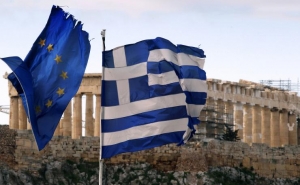
Speaking before the Greek parliament on Tuesday, Prime Minister Alexis Tsipras accused the International Monetary Fund of "criminal" policies that "humiliate" the Greek people.

The sides try to hammer a deal, in a sign that they were moving closer to a compromise despite protestations about the of the other side's proposals’ inacceptability. In other words each side is trying to make sure to show they are giving less compromise.
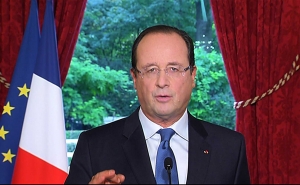
According to him the proposals should first of all be discussed on a lower level, before they are presented to the Eurogroup.

According to the source, the EU officials have said that if there is no progress, an ultimatum will be presented to Greece.

The government is said to be ready to submit counter-proposals to bridge differences with its creditors.

"I feel very close to the Greek people who suffer," EU Commission President said.

The Greek government told that even if there is an opportunity to extend the time of receiving financial aid, it will not resolve their real economic problems. It would be much better if instead of putting deadlines, they would try to focus on more substantive issues.

Greek Prime Minister Alexis Tsipras rejected a set of reforms put forward by EU Commission President Jean Claude Juncker, after they hold a meeting in Brussels. Having rejected the demands of the creditors, Tsipras insists that no cuts will be made on salaties and pensions.

Previously, in response the Greek Finance Minister Yanis Varoufakis called Europe to stop finger-pointing and find an agreement.
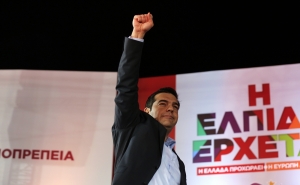
Greece has delayed Friday's 300million euro debt repayment to the IMF. Earlier, it was agreed that instead of four instalments scheduled for June the country will be paying a combined single payment at the end of the month.
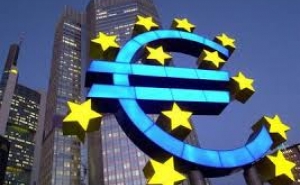
Faced with the threat of possible BREXIT and GREXIT of the European Union, France and Germany say it’s high time to strengthen the Eurozone and to address the ''critical flaws in the architecture of monetary union''.
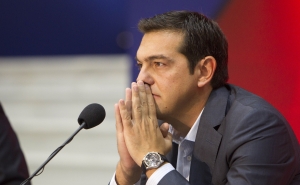
The talk also had an optimistic view that soon a mutually beneficial agreement will be combined.
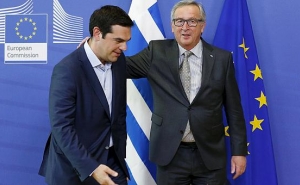
The Greek authorities have informed the fund today that they plan to bundle the country's four June payments into one, which is now due on June 30.

On June 3, Tsipras met the European creditors, namely the head of the European Commission Jean-Clode Juncker, during which the Greek government introduced its proposals about the reforms to be made. Despite the four-hour discussions, no tangible results were recorded and it was declared that another meeting will take place in the coming days.

Greece is to pay a €300m (£216m) IMF repayment due on Friday.

In the last few days, the Greek government and the Troika of international creditors - the EU, the European Central Bank and the International Monetary Fund - have been fighting over what needs to be done.

The first payment of €300m for Athens is due by Friday. Overall Freece is to pay €1.6bn (£1.1bn) to the IMF within the next few weeks.

On the eve of the talks Athens announced that it was close to reaching a deal with its creditors. But the Greek minister of Productive Reconstruction, Environment and Energy headed to Moscow on Friday, 29 May, where he was to have a number of meetings, which as he said were of "Energy topics of mutual interest".

Greece won a competition for its logo design for the new commemorative two-euro coin to mark the 30th anniversary of the EU.
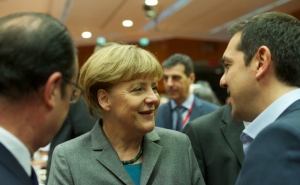
There is no way for Greece to get any financial assistance without the agreement of the International Monetary Fund.

The most interesting part of the meeting was when the Pentagon urged Greece to extend anti-Russian punishment and sanctions.

Greek Prime Minister Alexis Tsipras will meet with Francois Hollande and Angela Merkel in Riga tonight.

"Russia is Greece's ally and friend. The unbreakable bonds of a common religion as well as economic ties help unite the two countries," added Greek Minister.
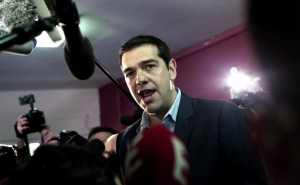
Head of the givernment underlined, that the Athens will fulfill its obligations, meanwhile expecting for the foreign partners to act correspondingly. They will be ready to sign new agreements with the creditors, but will never make cuts on pensions.

ELSTAT, the national statistics agency of Greece, provided the results of the second consecutive quarter.

Radical Left side government of Greece managed to scrape enough cash on Monday in order to implement the repayment of 750 million euros of IMF loans.

One thing is obvious - for Greece to come back to its previous currency - drachma, can be beneficial for the country’s economy, as it will raise the export and will keep prices down, which will push the production.

Everyone is waiting for the country to stay out of money, while the country manages to both pay its external debts and pay for wages and pensions.

According to Yanis Varoufakis the country can overcome with the problem without a new loan, but the debt needs to be restructured.
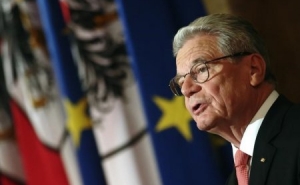
President of Germany Ioakim Gauck proposed to openly discuss the issue of Germany reparations with Athens.

The bill is going to be discussed with International Monetary Fund, European Central Bank and European Commission in the Brussels Thursday afternoon.

In the post of Mr. Varoufakis, the government appointed Deputy Foreign Minister Euclid Tsakalotos, who is a 55-year-old Oxford-educated economist and professor, and who would probably have a more active role in the troubled talks after months of fruitless discussions on Athens' new loan deal.

The Greek government announced on Monday that it is changing its team that was negotiating with international creditors.

Greece has ordered its public sector to give hand to reserve cash in order to meet the payment to the IMF.

"Iran is a key country in the region and Athens is determined to be Tehran’s friend and strategic partner," noted Ambassador Georgio Aifantis.

The euro currency fell down to $1.080 from $1.081 in New York.
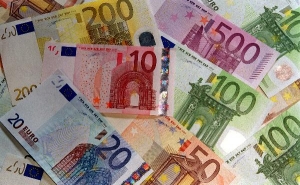
It is not secret that expulsion of Greek banks from Eurosystem could damage the currency union.

The advice of the US is that Greece needs to be more in detail while representing its budget and the new reform plan should be based on the needs of the country as it has to pay wages and salaries.
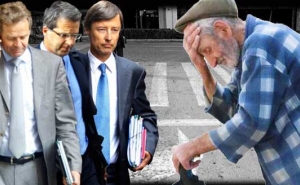
Payment delays have not been granted by the board of the IMF in 30 years.
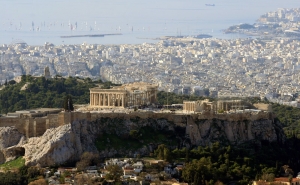
Athens faces a hard deal; choice between paying IMF and paying wags and pensions of its employees.

Greece have refuted the information about the intention to declare default for the sake of making pressure on the creditors.
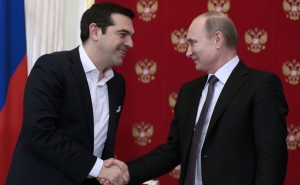
Both Tsipras's and Putin's expectations from this visit are different, but they look the same direction: undermining the EU unity. As Tsipras is seeking alternative ways to save or raise money, Putin looks for an ally to undermine the EU’s position.
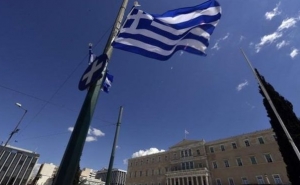
The reforms are needed for the next bailout.

Tsipras has declared that he will not go from country to country, saying that a European problem requires a European solution.
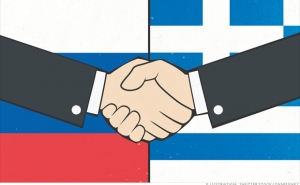
At a critical time for Athens Alexis Tsipras turned to Russian President Vladimir Putin for help.
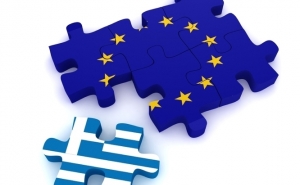
Greece is ready to undertake these measures in order to soften the financial crisis in the country in case if the Athens do not succeed to agree with the European partners on financial support.
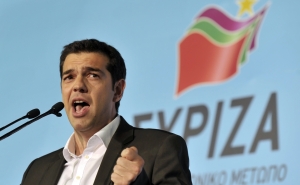
On April 8th the official visit of Greek Prime-minister to Moscow will take place, after which Tsipras will participate in official May 9 ceremonies.

Barroso said a Greek departure from the eurozone would still be "negative", but it would be less damaging now because financial markets are much more confident than they had been in recent years.

It seems that the new PM Alexis Tsipras sounds more and more desperate in demanding World War II reparations from Germany every time he meets German Chancellor Angela Merkel. While Merkel refuses any thought of reparations, Tspiras says Berlin has 'a moral obligation' to compensate for years of Nazi occupation.

Ahead of his upcoming visit to Moscow on April 8, Greek prime minister noted that there is a chance of bringing the trade ties between the two countries to a new level.

The overall dept is about 500 billion euros.
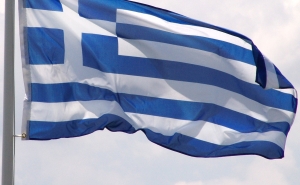
According to an agreement reached on 20 February between the Athens and Eurogroup, Greece has to present a full list of concrete reforms.

On the occasion Brzezinski noticed that Greek officials did not hide their prospect of turning to Russia or China for help in case loan talks with the EU end in failure.

Merkel made clear her outlook for Greece, which is to overcome with economic growth and high unemployment rate.
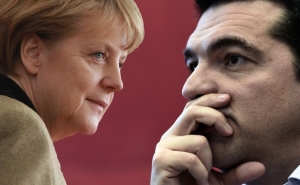
Angela Merkel declared that "the issue of reparations is politically and legally closed."
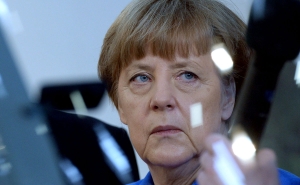
Greece needs to unlock the aid payments from Europe which will keep the country afloat.

EU leaders suggested Greece coming up with a new reform plan within days.

The European Central Bank raised the maximum amount of ELA by 400 million euros for Greece.

Technical talks between Greek officials and those of its creditors restarted today.

Greece has owned €323 billion to the Eurozone and it wants €162 billion from Germany to be paid as war reparations.

The Greek government’s cash supplies are running low, there are fears that the funds might last for a few weeks.

During the Eurozone finance ministers meeting in Brussels Eurogroup chief, Jeroen Dijsselbloem, has warned Greece "to stop wasting time and to get down to some serious work on economic reforms".

Panos Kammenos, the Greek defence minister, warned that if the eurozone allowed Greece to go bust it would give EU travel papers to illegal immigrants crossing its borders or the 10,000 currently held in detention centres

The idea of undercover tax collectors, which suggest to hire tourist to work temporarily as undercover tax collectors, seems very unserious and skeptic for Eurogroup members.

Even if Greece manages to reimburse its bills to the foreign creditors, the country still has a large number of people who should be pulled out from poverty.

German Chancellor Angela Merkel and the European Commission President Jean-Claude Juncker stated that the Athens should continue to pursue the reform program agreed with its EU partners.

Greek Prime Minister Alexis Tsipras also has denied that his country would need another international program.

Some people are betting on a third bailout in July, but we will disappoint them.

Angela Merkel’s center-left party approved Greek bailout extension.
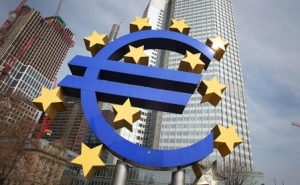
Eurozone approved a list of reforms submitted by Athens

There are three possible scenarios of Greek economic development: euro-exit, euro-stay and an intermediate scenario.
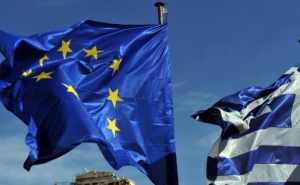
After tough meetings with the creditors and the representatives of the European institutions that are involved in the deal, Greece has come up with the solution which they submitted to the Eurogroup.

According to the Commission the comprehensive list can be a valid starting point for a successful conclusion of the deal.
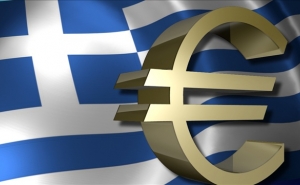
Eurozone officials said that this accord requires Greece to submit a list of measures on Monday that the country will undertake in return.

As for the Eurogroup meeting being held at the moment, Greece's leftist Prime Minister said he is sure that euro zone Finance Ministers will accept Athens' request for extention of the loan.
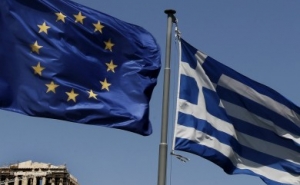
Greece suggestion to extend its six-month Eurozone loan program instead of renewing its bailout deal, has already been rejected by Germany.

Eurogroup confirmed that they had received the request and they have planned to evaluate the Greek proposal on Thursday.

This meeting of the Eurogroup could be considered crucial, as both sides declared that they would proceed with the negotiations if an agreement was reached. Nevertheless, the sides did not manage to reach an agreement.

Prime Minister Alexis Tsipras in his speech yesterday said that Greece has a “moral obligation” to claim for repayment for a forced wartime loan by the Third Reich, which was about 11 billion euros (476 million Reichsmarks). Now Greece insists that Germany owes it around 162 billion euro, which is around half of the Greek public debt.
 17:08
17:08 15:05
15:05 11:11
11:11 10:43
10:43 09:16
09:16 19:55
19:55 18:30
18:30 18:20
18:20 17:01
17:01 16:45
16:45 16:01
16:01 15:59
15:59 15:43
15:43 15:06
15:06 14:47
14:47 14:44
14:44 14:20
14:20 12:57
12:57 11:40
11:40 10:16
10:16day
week
month